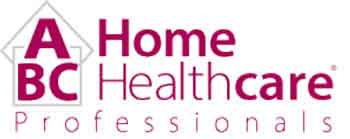Don’t Fall for Medicare Scams
By now you should know we are currently in the open enrollment period for Medicare which lasts until December 7th. It is likely that you have received letters or post cards in the mail from Medicare Advantage companies and even some emails too! With so much buzz around Medicare and countless Medicare Advantage Plans to choose from, it can become very difficult to not only understand when and why you should sign up but which sources are trustworthy and which ones are not.
While we cannot stop scammers from taking advantage of opportunities, like this, to scam unsuspecting victims, we can tell you a few things that will help you more easily identify a potential scam…
- Medicare DOES NOT call you and ask you for personal or private information. If you did not call Medicare and request a call back from someone, then this is a tell-tale sign that it is likely a scammer on the other line.
- You will usually get a written statement in the mail before you get a phone call from a government agency. This is not only for Medicare but it is for other government entities as well such as the IRS etc.
- DO NOT trust any random call that requests that you provide health insurance information, Medicare card or Medicare number, social security numbers, bank information etc.
- The only people who should be allowed to review your medical records or recommend services to you are your doctor(s), other medical professionals, or a trusted Medicare provider and/or advisor.
- Never join a Medicare Health or Drug Plan over the phone unless you called Medicare directly or are working with a licensed Medicare insurance agent.
- Always verify a sender’s email address before opening or responding to an email. Scammers are extremely good at graphic design and making phishing emails look legitimate with recognizable logos etc. to throw email recipients off- making them believe that the email they are reading is legitimate. To verify the sender’s email, hover over it in your inbox. If the email has lots of characters and numbers and seems to not make much sense and isn’t followed by a “.org”, chances are it is a scam so just go ahead and delete it. If you are concerned that you may have made the wrong judgment, try calling the entity that supposedly sent you the email and speak to a representative to see if they did try to reach you via email or not. Though it is an extra step, you are better off making this extra effort than giving the fraudster the easy way out!
Scammers can be very convincing and there are so many ways that they can find out as much information about you as possible that make their call seem legitimate. If something seems off or if the person on the other line is pressuring you for personal information or to sign up for something etc., it is imperative that you simply hang up and then report the call to your local police department or you can call Medicare directly (1-800-633-4227) if it was a suspected Medicare scam call.
All of the above information was provided by the Federal Communications Commission and we, at ABC Home Healthcare Professionals, encourage you to visit their website for more content and helpful resources like consumer guides on “Spoofing and Caller ID” and “Unwanted Calls and Texts”. There are many resources available to you that can help prevent you falling victim to Medicare scams!

